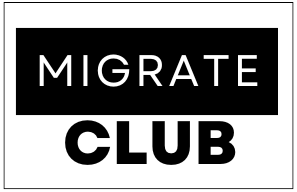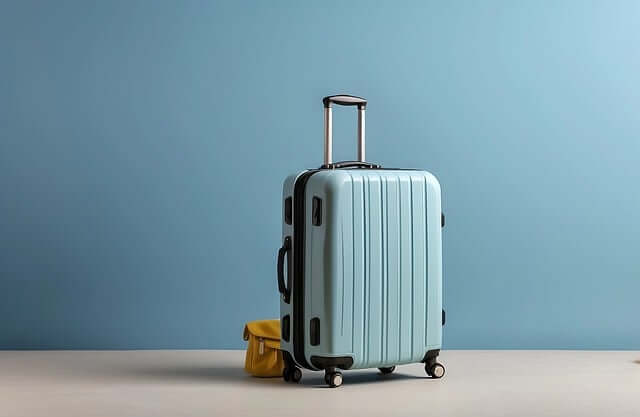International students on F-1 visas often face various challenges while studying in the U.S. This FAQ addresses critical issues such as running a business, legal troubles, taking breaks, and work authorization.
Can an F-1 student start a business in the U.S. while studying?
F-1 students may invest passively in a business but cannot actively manage it. Starting and running a business is considered work by the U.S. government. To start and run a business, an F-1 student must apply for Optional Practical Training (OPT) related to their field of study, either before (pre-completion OPT) or after graduation (post-completion OPT). Note that students cannot be their own employer for the STEM OPT extension.
What happens if an F-1 student gets a DUI or other serious legal charges?
Serious legal issues, such as a DUI, can jeopardize an F-1 student’s visa status, potentially leading to visa revocation, denial of future visa applications, or deportation. Students facing legal issues should consult an immigration attorney immediately.
Does taking a leave of absence affect my F-1 visa status?
Yes, taking a leave of absence can affect F-1 status. Students should work with their Designated School Official (DSO) to manage the leave properly. Depending on the duration and reason, students may need to leave the U.S. and reapply for a new visa to return.
Can F-1 students volunteer or do unpaid internships?
F-1 students can engage in volunteer work or unpaid internships if the position meets the Department of Labor’s criteria for unpaid internships, ensuring no employment relationship exists and the work is genuinely voluntary.
What are the rules for F-1 students regarding online courses?
F-1 students are allowed to take only one online course or three credit hours per semester as part of their full course load. The remaining credits must come from in-person classes.
How does pregnancy or having a child affect my F-1 visa status?
Pregnancy or having a child does not directly affect F-1 status. However, students must maintain a full course load unless a reduced course load is authorized by their DSO for medical reasons.
Can F-1 students travel to U.S. territories like Puerto Rico or the U.S. Virgin Islands?
Yes, F-1 students can travel to U.S. territories without needing a new visa, as these territories are considered part of the U.S. for immigration purposes.
What happens if my program end date is extended but my visa is expiring?
If your program end date is extended, your DSO can extend your I-20. However, if your visa is expiring, you must renew it to re-enter the U.S. after traveling abroad.
Can F-1 students enroll in two schools simultaneously?
Yes, F-1 students can enroll in two schools simultaneously with permission from their primary school’s DSO, as long as the combined course load is considered full-time.
How do criminal charges in the U.S. affect my ability to travel on an F-1 visa?
Criminal charges can affect your ability to travel and re-enter the U.S. Convictions may lead to visa revocation. Seek legal advice to understand your specific situation.
Can I change my field of study or major while on an F-1 visa?
Yes, you can change your field of study or major. Inform your DSO, who will update your SEVIS record and issue a new I-20 if necessary.
What if I need to transfer schools but my SEVIS record is terminated?
If your SEVIS record is terminated, you must apply for reinstatement or leave the U.S. and re-enter with a new initial I-20 from your new school.
How do changes in financial support affect my F-1 status?
Changes in financial support must be reported to your DSO. Insufficient funds to support your studies could affect your visa status, requiring new financial documentation.
What happens if I drop below a full course load without prior authorization?
Dropping below a full course load without authorization can result in termination of your F-1 status. Always seek approval from your DSO before changing your course load.
Can an F-1 student apply for a green card while studying?
Yes, F-1 students can apply for a green card through family sponsorship, employment, or other eligible categories. This process is complex and requires careful handling to avoid violating visa status.
What are the implications of overstaying the F-1 visa by a few days?
Overstaying your visa, even by a few days, can lead to serious consequences, including ineligibility for future visas. Always maintain your status and consult your DSO if issues arise.
How can F-1 students deal with family emergencies that require them to leave the U.S. temporarily?
In case of family emergencies, inform your DSO and obtain a travel signature on your I-20. Ensure your visa is valid for re-entry and carry documentation to explain the emergency upon return.
What options are available for F-1 students who cannot return to their home country after their program ends?
Options may include applying for OPT, changing to another visa status, or applying for asylum if eligible. Consult an immigration attorney for guidance.
Can F-1 students work remotely for a company outside the U.S.?
Generally, F-1 students are not allowed to engage in unauthorized work, including remote work. Consult your DSO to ensure compliance with immigration regulations.
How do I reinstate my F-1 status after falling out of status?
To reinstate your status, file a reinstatement application with USCIS, demonstrating that the violation was beyond your control or due to an approved reduced course load.
Are F-1 students allowed to participate in crowdfunding or online fundraising campaigns?
F-1 students can participate in crowdfunding or online fundraising, provided it does not constitute unauthorized employment. Proceeds should not be linked to work performed in the U.S.
What should an F-1 student do if they become seriously ill and cannot attend classes?
Notify your DSO immediately. You may qualify for a reduced course load or a medical leave of absence with proper documentation from a medical professional.
Can F-1 students apply for social security numbers (SSNs), and what are the requirements?
F-1 students can apply for an SSN if they have authorized employment (on-campus job, CPT, or OPT). They need a job offer letter, valid I-20, passport, visa, and a letter from their DSO.

























